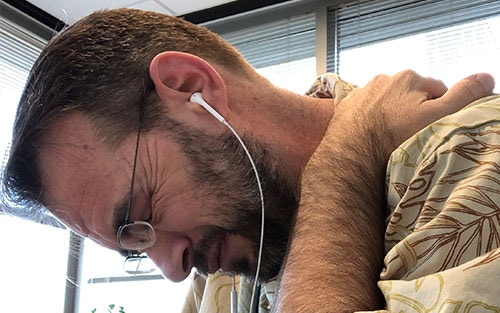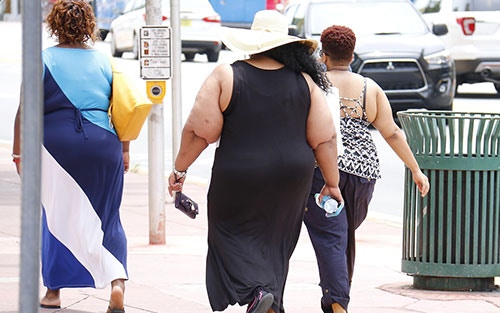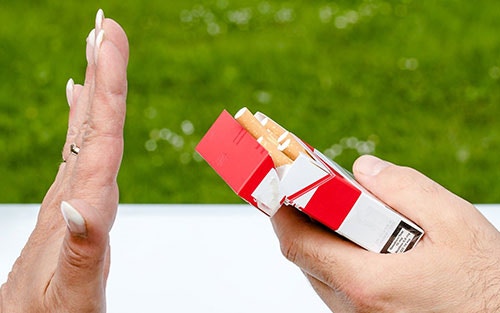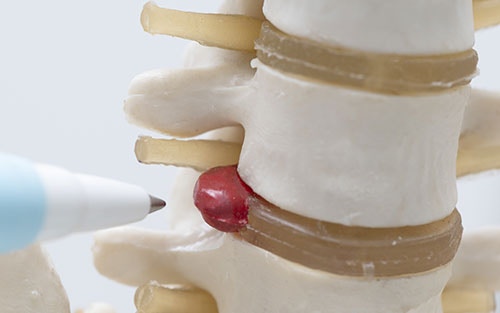Did you know that you can alleviate upper back pain and prevent it from disrupting your work, sleep, and happiness? With a few simple adjustments in your habits and daily routine, you can regain your movement and capabilities.

yourfootpalace.com gathered information on what you can do to alleviate upper back pain and what causes it.
Fast Back Pain Relief
When you are suffering from upper back pain, the following may offer fast relief and get you back to your normal activities:
• Stop all strenuous activities.
• Cease any alcohol or non-prescription drug consumption
• Apply a cold pack or ice (for 2-3 days)
• Use an over the counter anti-inflammatory (for 2-3 days strictly following the package directions)
• Once you can move without sharp pain (after a day or so), start stretching the affected muscle groups to loosen them and accelerate the healing process.
• Schedule a massage. Since the area may be extremely sensitive to touch, a reflexology massage is highly recommended.
• Sit and walk upright. Your posture has a significant influence on how your back muscles function.
Consult your primary care physician:
• For any and all muscle pain that persists longer than seven days with no signs of relief.
• If you are on any type of diet or other medication before introducing another kind of medicine or supplement to your body.
Why Does My Back Hurt?
Upper back pain usually occurs suddenly and without warning. This type of pain can take time to heal and can be caused by any or a combination of the following:
Poor Lifting Practices – Regardless of how much you work out or how strong you are, your back becomes extremely vulnerable to injury when incorrectly lifting any amount of weight.
Solution: Never bend over to lift an object.
• Keeping your back straight, bend your knees until you reach the object
• Get a firm grip on the object and bring it close to your body
• Raise up using your leg muscles
• If the object is too large or too heavy causing you to lean forward, get help
The use of a back brace does not prevent injuries from improper lifting, instead, helps you maintain your back in an upright position.
Being Overweight or Obese – Your weight plays a significant role in your back health. Carrying just a few extra pounds can put constant stress on your back muscles resulting in poor posture, discomfort, injury, and pain.

Solution: Lose weight in a responsible and structured manner by:
• Consulting your primary care physician to determine the ideal weight for your height and body type.
• With the help of a certified nutritionist, alter your diet and eating habits.
• Increase your physical activities.
• Hire a certified personal trainer to guide you through more efficient exercises and set realistic weight loss goals.
Losing weight and keeping it off requires a change in lifestyle. Fad diets and intense workout programs may produce results, but if you go back to your default diet and activities, the weight will return.
Accident or Impact Injury – Back pain can also be caused by a slip, being hit by a falling object, a vehicle/equipment accident, or a sports injury. Whenever an impact is involved, this back pain may be a result of muscle damage, ligament tears, spinal damage, and/or bone fractures.
Solution: Immediately consult your primary care physician to determine the severity of the injury and recommend treatment to alleviate the pain.
Poor Posture – Good posture is fundamental in keeping your back free of muscle strain, headaches, and chronic back pain. Poor posture results from specific muscle groups tightening or strengthening, while others lengthen or weaken.
Solution: Change your posture habits. A neutral spine position will relieve pressure from the spine, promote better breathing, and reduce abdominal pressure. To achieve this position while sitting:
• Bring your shoulders down and back
• Move your head to an upright (slightly back) position
• Tighten your core muscles
• Pull in your gut as if you were tying the drawstring on a pair of sweats
Learn more about how to fix poor posture by reading yourfootpalace.com/how-to-make-good-posture-habit/
Smoking – While smoking may not be a direct cause of back pain, it can exacerbate the symptoms and overall discomfort.
Smoking at any level or quantity causes vascular constriction and reduced blood flow throughout the body, among several other staggering effects.
Solution: Cease the use/consumption of all tobacco products. For those who experience difficulty in breaking the habit, your primary care physician may prescribe:
• Nicotine patches
• Prescription medication
• Therapy

There are no safe levels of tobacco consumption. No matter how you smoke it, acetone, tar, nicotine, and carbon monoxide (all associated with smoking) do not contribute to your good health.
Technology – As we become more reliant on cell phones, televisions, and computers, we spend an increased amount of time looking down to read messages, slouching at our desks, and slumping on the sofa watching hours of television.
In doing these things, we are asking our muscles to remain in awkward positions for extended amounts of time, while creating the conditions for muscle strains, poor posture, and back pain.
Solution: Be mindful of the amount of time spent on devices and in front of your television or computer. The following may also help:
• Set a timer to remind you to get up from your desk periodically
• Put your phone (and other devices) away while engaging in other activities
• Set a time limit on the amount of television you watch
• While you are bettering your posture, leave yourself post-it notes, set alarms, and enroll friends and coworkers to remind you to “straighten up”
A change of mindset and habit needs to occur so that the gadgets and equipment meant to facilitate our lives don’t leave us with crippling pain.
Lack of Sleep – Muscles that have been strained or are under pressure from poor posture may “explode” in pain if you are not getting enough sleep.
According to the National Sleep Foundation, tissue growth and repair (triggered by the release of growth hormones) occurs in N3 (formerly known as stages 3 and 4) and are the deepest, most restorative sleep.
Solution: Maintain a regular sleep schedule that allows a minimum of six to eight hours to promote the stages of sleep and REM.
Note: If back pain is keeping you from sleeping, the healing process will likely take much longer and be more painful than if you were getting regular sleep. If this is the case, seek assistance from your primary care physician.
Cold Muscles – The majority of muscle strains in sports, the gym, yard work, etc. are due to a lack of preparation before using the muscles.
Solution: Before any type of workout or physical exertion, stretching, and “warming up” your muscles will help you avoid strains, tears, and cramps.
Herniated Disc – While herniated discs are far more common in the lower back, they sometimes occur in the upper back.

The discs are the soft, flexible cushions between the vertebra. A herniated disc occurs when a piece of this cushion pokes through and puts pressure on the spine.
Solution: Most herniated discs heal with rest and anti-inflammatory medication (as prescribed by your physician).
Myofascial Pain – Sometimes, back pain can result from problems in the connective tissues of the back, called the fascia. This pain typically results from muscle overuse or after an injury.
Solution: Treatment for myofascial pain usually consists of physical therapy and myofascial release therapy.
Osteoarthritis – This condition occurs when the cartilage that protects and cushions the bones wears away, causing back pain. Osteoarthritis is commonly mistaken for muscle pain, when, in fact, it is a problem in the joints. As the condition worsens, it can result in numbness and/or tingling in the arms and legs.
Solution: If you suspect that your back pain is related to osteoarthritis, see your doctor for an accurate diagnosis and treatment plan.
When to Seek Medical Attention
If your back pain is accompanied by any of the following, seek immediate medical attention:
• Back pain resulting from a fall or injury
• Back pain accompanied by a fever without flu symptoms
• Back pain that interrupts or prevents your sleep after three nights
• Weakness or numbness in your legs and/or arms
• Pain extending down one leg below the knee
The above symptoms indicate that your back pain may be a result of something other than muscle strain.
Upper Back Pain Relief
In this article, you discovered how to get immediate relief from upper back pain, the many factors that can contribute to that pain, and what to do about them.
By taking action to relieve your upper back pain and eliminate its contributing factors, you are increasing your quality of life and overall health.
By allowing back pain to persist unchecked, you are inviting the potential for several health and wellness problems to go undiagnosed and untreated.
Sources:
orthop.washington.edu/patient-care/articles/arthritis/back-pain.html
healthcenter.vt.edu/content/dam/healthcenter_vt_edu/assets/docs/MCOrthoRehab-UpperBack.pdf
health.harvard.edu/pain/4-ways-to-turn-good-posture-into-less-back-pain
sleepfoundation.org/articles/what-happens-when-you-sleep
(706) 521-5290
(678) 963-5958